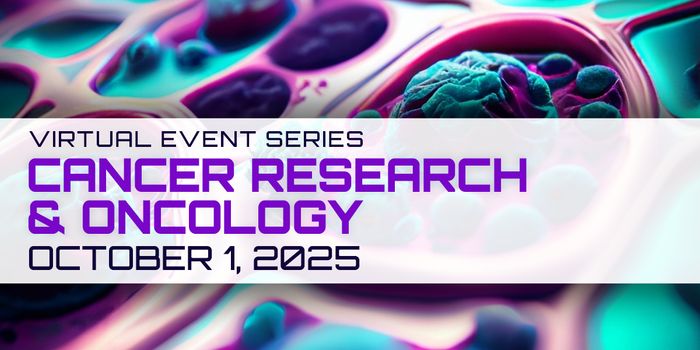Pharma Analysis & QC Strategy, MilliporeSigma

Speakers Share
-
Wayne K. Way, Ph.D.
-
Marilyn Romieux Vicente
Strategic Marketing Director - Microbiology Pharma Segment, Merck, Molsheim, France, an affiliate of Merck KGaA, Darmstadt, Germany
BIOGRAPHY Presentation Information
Future of Robotics & Automation in Quality Control
The pharmaceutical industry is evolving towards automated, intensified and real-time-monitored production processes. Quality control equally needs to adapt to meet the requirements of productivity, data integrity and reliability of Pharma 4.0. The webinar will detail how automation of microbial testing in the lab through the use of robotics and digital tools will transform the QC process. The benefits of automating QC will be explored, with quantitative estimations based on real cases. Attendees will learn how Millipore Sigma has engaged into driving this transformation by creating optimized solutions combining the benefits of our industry-leading products and those of automation. The webinar will focus mostly on the bioburden workflow as a use case for automation.
-
Nicolas J. Hauser, Ph.D.
Advanced Analytical Technology Specialist, MilliporeSigma
BIOGRAPHY Presentation Information
How the Choice and Use of Reference Materials Can Improve the Quality of Your Analytical Workflow
The Advanced Analytical portfolio offered by MilliporeSigma, branded as Supelco®, is a group of products that individually and together make end user’s lives easier. The Supelco® portfolio includes a wide range of columns, accessories, and consumables used in all analytical applications as well as a robust offering of reference materials. Reference materials are a critical component of the laboratory’s quality system. From calibration of measurement systems to validation of methods, reference materials ensure accuracy in testing. Different terminologies between pharmaceutical (compendial) and non-pharmaceutical (ISO) reference materials can lead to confusion in determining the best fit-for-purpose reference, potentially impacting accuracy of the testing method. In this presentation, important concepts from metrological traceability, SI unit of measurement and certificate of analysis will be discussed along with the different quality grades of reference materials and how selection of the proper quality grade can ensure optimal fit-for-purpose and testing accuracy. Traceability, certification, stability, and workflow application examples will be provided.
-
Vivek Joshi, Ph.D.
Senior R&D Manager, Applications Development, MilliporeSigma
BIOGRAPHY Presentation Information
Filtration in Dissolution Testing: Improving Throughput and Reducing Variability
In vitro dissolution testing is used to characterize drug compounds throughout their development. In early drug development it is used to support the choice of a particular formulation. During drug production it is a critical component of the quality control process and is used to assess the changes in manufacturing processes or formulation. In order for dissolution results to be meaningful at each stage, the test and the process need to be reliable, consistent, predictive and accurate.
Filtration as the only sample preparation step plays an important role in the dissolution process, yet this step is often taken for granted. The choice of frits or syringe filters is often based on experience with previous formulations or availability in the lab. Selecting the wrong filter can result in inadequate filtration, low analyte recovery, solvent incompatibility or extractables that reduce accuracy and reproducibility. The wrong pore size or device can result in clogging that can adversely affect throughput and sample processing.
This seminar describes different membrane characteristics and provides guidance in selecting the right filtration devices for sample preparation following in vitro dissolution. Problems that result from using the wrong filter are presented along with steps one can take to solve each problem. Filter characteristics that affect drug recovery and downstream analysis, such as non-specific binding and extractable levels, are presented. Steps one can take to optimize throughput and reduce downtime are addressed including a discussion on membrane properties and guidance on the use of multi-layer and automation compatible filters. Recommendations are presented for choosing the right sample preparation device that will help improve throughput, reduce sample processing time and enhance test accuracy and reproducibility.
Our successful June two-day online event that focused on challenges and trends in Pharma Analysis & QC is now available on demand.
With the pharma value chain rapidly evolving – and with over a year of COVID-19 impact, we felt it was an important time to gather the community working in pharmaceutical analysis and quality control to share knowledge around small and large molecules characterization, method development, analytical and microbial testing, regulations, QC, lab efficiency and innovation. With recent data from a survey done in partnership with the Analytical Scientist, we shared how the community envisions future Pharma analysis & QC trends and the most common challenges faced. The event attracted a diverse and global audience with job functions focused mostly on QC manufacturing, method development, drug discovery, compliance and non-clinical development/formulation.
You now have access to our four webinars, the pharma analysis & QC resource center, as well as the portfolio booths, centered around discovery & development, microbial testing, analytical chemistry and lab water solutions.
4 WEBINARS
Day One: June 23, 2021
Trends, Challenges and Outlook in Analysis & Quality Control
Wayne K. Way, Ph.D.
Future of Robotics & Automation in Quality Control
Marilyn Romieux
Day Two: June 24, 2021
How the Choice and Use of Reference Materials Can Improve the Quality of Your Analytical Workflow
Nicolas J. Hauser, Ph.D.
Filtration in Dissolution Testing: Improving Throughput and Reducing Variability
Vivek Joshi, Ph.D.
-
Wayne K. Way, Ph.D.
Pharma Analysis & QC Strategy, MilliporeSigmaBIOGRAPHY -
Marilyn Romieux Vicente
Strategic Marketing Director - Microbiology Pharma Segment, Merck, Molsheim, France, an affiliate of Merck KGaA, Darmstadt, GermanyBIOGRAPHY -
Nicolas J. Hauser, Ph.D.
Advanced Analytical Technology Specialist, MilliporeSigmaBIOGRAPHY -
Vivek Joshi, Ph.D.
Senior R&D Manager, Applications Development, MilliporeSigmaBIOGRAPHY
Please update your information
Certificate of Attendance
DOWNLOAD CERTIFICATE













